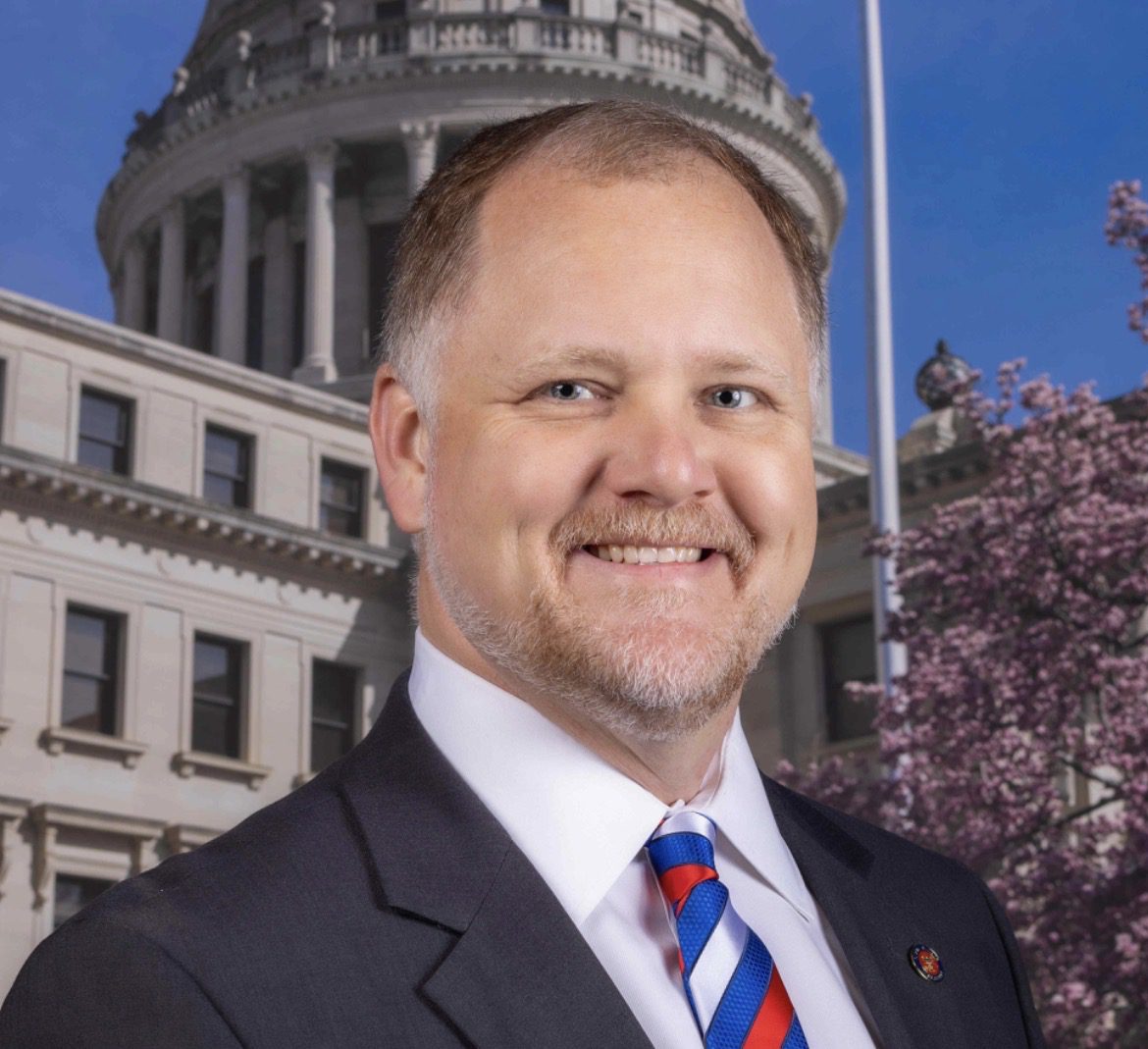
Jackson Mayor Chokwe Antar Lumumba, center, sits with staff as he watches lawmakers debate House Bill 1020, which would create a separate court system in the Capitol Complex Improvement District, Tuesday, Feb. 7, 2023, at the Mississippi Capitol in Jackson. (AP Photo/Rogelio V. Solis - Copyright 2023 The Associated Press. All rights reserved.)
- Former State Rep. Nick Bain says Mississippi can be more proactive in passing laws that stem the tide of corruption.
Hubris is defined by Merriam-Webster as exaggerated pride or self-confidence. The Holy Bible is filled with many examples of the trait. The ancient kings of the Old Testament exemplified hubris well. Jesus spoke of hubris many times and said that “pride” is one of the many things that come from within and defiles a man. (Mark 7:21-23)
In modern Mississippi, we see no better example of hubris than in Jackson Mayor Chokwe Antar Lumumba.
During my time in the Legislature, I served as Chairman of the House Judiciary B Committee. This committee was charged and tasked with overseeing public safety in Mississippi. In October of 2022, we set a hearing on the subject of crime in the Capital City. The purpose of the hearing was to get public answers to the city of Jackson’s plan on the ever-increasing crime problem and to discuss a comprehensive state and city plan to protect the citizens of Jackson.
Some of the bills that expanded and strengthened the Capitol Complex Improvement District (CCID) came from this meeting.
The hearing had many stakeholders in attendance, but also two notable “no shows” — then-Police Chief James Davis and Mayor Lumumba. To be clear, both of these high-ranking Jackson officials were invited and confirmed to speak. Late on the day prior to the hearing they both notified my office they would not appear. Neither offered a reason.
The morning of the hearing I announced that both had cancelled, and as such, I was issuing a rarely used legislative subpoena for their attendance at a later date. Within minutes of this announcement, Chief Davis appeared at the hearing and testified. His testimony was one of the most impactful of the day and provided useful information to the committee.
Mayor Lumumba’s office contacted me soon after the hearing and stated that he was sick. While accepting their reason, I refused to release him from the subpoena. He eventually appeared before the committee, to his chagrin.
Lumumba’s hubris in his interaction with the House Judiciary B Committee can be seen again now as he shrugs off a multiple-count federal corruption indictment as nothing more than a “political prosecution.”
As a practicing attorney in Mississippi, I have represented multiple defendants in public integrity and corruption cases. Each of them, from a co-defendant of former MDOC Commissioner Chris Epps to a low paid county official, possessed the same hubris and grandiose sense of self that Lumumba does.
Mississippi State Auditor Shad White and his team have investigated hundreds of cases and have convicted dozens of Mississippians. His office has recovered and demanded millions of taxpayer’s dollars to be returned to the state. Yet, it seems as though every week there is another news story of some county or state official being charged with embezzlement or fraud.
Similarly, Mississippi has seen large scale corruption scandals on what seems like a regular schedule. Christopher Epps and other defendants schemed to defraud the state of millions in an MDOC kickback scandal that at the time was the largest public corruption case the state had ever seen. Since then, the state has been rocked by the TANF welfare scandal with far reaching tentacles that have implicated some of our state’s most famous citizens.
Now the Mayor of Jackson, our state’s most populous city, along with the Hinds County District Attorney, are embroiled in a bribery case, the facts of which are ripped from the pages of a John Grisham novel.
So, what does Mississippi need to do to curtail these corruption cases? That answer is not an easy one. Hubris will be present in those in authority until the end of time. After all Jesus died as the result of it and Moses parted the Red Sea because of it.
However, the state can be more proactive in passing laws that stem the tide of corruption.
For example, a long-debated issue has been to remove those convicted of public corruption from the state’s retirement program. Allowing the local coroner convicted of fraud to still draw his PERS gives many taxpayers heartburn.
In addition, the state should consider a process to remove officials who are facing corruption charges. These officials are unquestionably innocent until proven guilty and should be given all necessary due process. However, they are in positions of public trust and when that trust is called into question the taxpayers should have an option to protect their interests.
This was the reasoning of HB 1357 that I authored in 2016. The bill provided for the removal without pay of a public official after a hearing by the governing authority of the county or city employing the official. If the defendant later received a positive disposition of the case, he was then restored to office.
The bill aimed to do two things. First, it allowed for the necessary functions of government to continue without the cloud of these charges. Second, it aimed to send a message to elected officials that if the public’s trust is betrayed, a price will be paid.
Lastly, there needs to be a uniform process for the removal of public officials. Currently taxpayers have a process to remove county officials, but no such mechanisms exist for municipal officials. Rep. Shanda Yates attempted to rectify this with her 2023 bill HB370. That bill simply added municipal officials to existing law that already allows for removal of county officials.
Though these laws would not end corruption, they would help to ferret out some of the bad actors. Unfortunately, though, corruption is bred and fostered by the pride and hubris of man.
Elected officials like Mayor Lumumba, exemplify the ancient proverb set forth by King Solomon, “Pride goeth before destruction,” Proverbs 16:18.
Sadly, this destruction occurs too often in Mississippi.









